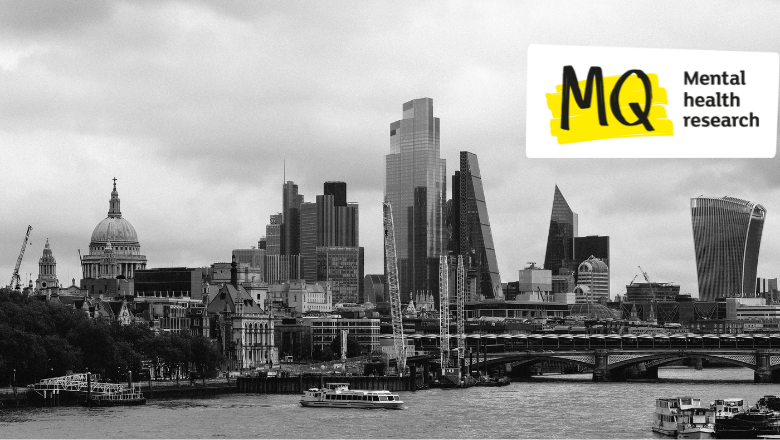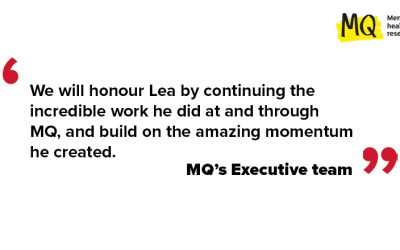One week ago, UK Prime Minister Rishi Sunak gave a speech causing concern when it comes to words he used about mental health. Language can be powerful, particularly in regards to mental health conditions. During this election year (2024), when party leaders want your votes, mental health has been thrust to the forefront of certain political policies. The Conservatives recent rhetoric has provoked a strong response from charity sector leaders and health organisations. In a previous article, we looked more closely at Rishi Sunak’s speech given on Friday 19th April to separate the science from the spin. Now, we look at how charities and health leaders have responded.
How have charities, sector leaders and health organisations responded to Mr Sunak’s words?
On BBC Question Time live from Tottenham on 25 April, chair of the NHS Confederation Baron Victor Adebowale said "The language that we use gets used again, even in the question 'do we have have a sick-note culture?'...it's cruel. {While} 870,000 might be out of work but 2,000,000 people have long Covid, a recognised illness,"
Baron Adebowale continued "I've rarely met someone who doesn't want to work and doesn't want help to be able to work. For every month you're out of work, your mental health deteriorates, measurable mental health such as anxiety and depression scores. You need help to build the skills, to retain the skills. And you might go back to different work. When somebody says 'sick-note culture' or you need 'specialists', what people get used to thinking is this doesn't mean additional investment in occupational therapists, this means somebody working for the DWP or a private company who is measured by the ability to beat you back into a job,"
The chair of the NHS Confederation finished the point by focusing on NHS statistics, "Looking at the NHS, my members tell me 41% of NHS staff feel unwell at any one point, 54% went into work while feeling unwell, 34% are emotionally exhausted, 30% are burn out and 57% however think the NHS actually does a good job. We need to stop using this performative language. Empathy, kindness, understanding {is needed}. Let's not beat people, let's not be cruel."
Centre for Mental Health CEO Andy Bell warned that the Conservatives’ proposed policies would put more people with mental health conditions at risk of “benefit sanctions”, also cautioning that Mr Sunak’s suggestion of “over-medicalising” could discourage people from seeking vital support when they need it.
Dr Sarah Hughes, CEO of mental health charity Mind expressed disappointment at the Prime Minister’s speech saying it “continues a trend in recent rhetoric which conjures up the image of a ‘mental health culture’ that has ‘gone too far’. This is harmful, inaccurate and contrary to the reality for people up and down the country.”
She said “to imply that it is easy both to be signed-off work and then to access benefits is deeply damaging. It is insulting to the 1.9 million people on a waiting list to get mental health support, and to the GPs whose expert judgment is being called into question.”
James Taylor from disability charity Scope said, “This feels like a full-on assault on disabled people. These proposals are dangerous and risk leaving disabled people destitute. In a cost-of-living crisis looking to slash disabled people’s income by hitting PIP is a horrific proposal.”
Jen Clark from Amnesty International UK’s head of economic and social rights said that Mr Sunak’s announcement “demonises some of the most vulnerable people in the country… targeting and humiliating people with disabilities because they need financial assistance”.
Ruth Wilkinson, head of policy and public affairs at the Institution of Occupational Safety and Health, focused her response on what the Government could be doing differently, commenting “If the Government is serious about addressing the issue of economic inactivity, it’s crucial it prioritises investing in occupational safety and health and identifying and tackling the root causes. The main focus needs to be on prevention, ensuring work is safe, healthy and supportive and accommodates people’s needs.”
“{Mr Sunak’s speech} is an irresponsible war of words on people who already aren’t getting enough support, which the Government would rather not talk about.” Iain Porter, the Joseph Rowntree Foundation
Iain Porter senior policy advisor of poverty charity the Joseph Rowntree Foundation also echoed Ruth Wilkinson’s suggestion of alternative stances the Government could be taking, saying “Any sensible aspects of the Government’s previously announced planned reforms like a better focus on occupational support have become overshadowed by damaging rhetoric about which illnesses are genuine or not. Many people want to work, as the Prime Minister says, but have their hopes dashed by woeful health and wellbeing support and jobcentres unfit for purpose.”
“The Prime Minister must know he can’t scare people into good health,” said Alison Garnham, CEO of Child Poverty Action Group (CPAG). “His words will be chilling for low-income families who rely on our social security system for help. His government needs to address the reasons people can’t go to work – like poor health – rather than make life harder for those who are struggling.”
Alison Garnham also suggested where Mr Sunak could be investing instead, saying “The PM should focus on delivery investment in the NHS, improving employment support and providing social security for everyone who needs it, including the record number of children currently living in Poverty”
“Mr Sunak should look closer to home and at NHS waiting lists.” Ash James, director of practice and development at the Chartered Society of Physiotherapy, appears to agree with Alison Garnham, adding that “Employers should also be doing more to make such services available to their staff, given the clear link between productivity and the health of a workforce. But until the Government gets on top of NHS waiting times by addressing the serious workforce crisis across a whole range of professions including physiotherapy, too many people will continue to be let down and forced out of work.”
Over 30 mental health organisations, including MQ Mental Health Research joined together last year to call on all political parties to make a commitment to mental health in their election manifestos. This was outlined in a Mentally Healthier Nation report. We at MQ along with the other signatories in this report, believe that a long-term comprehensive cross-government plan is essential to protect and promote the whole of the UK's mental health.



